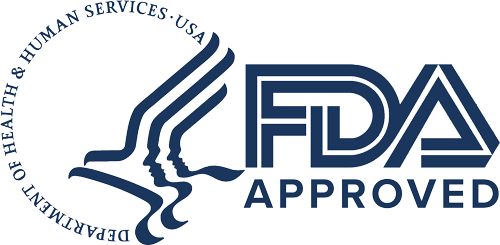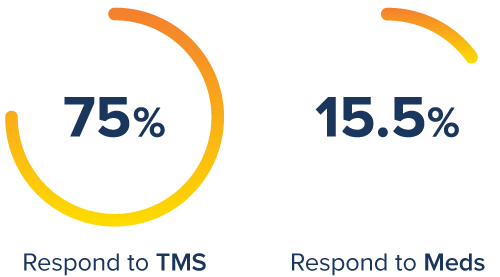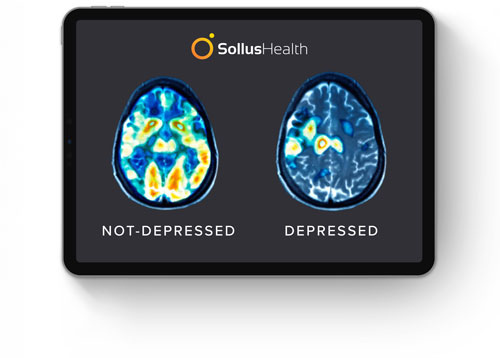Exploring the Pros and Cons of TMS Therapy for Mental Health Treatment





BREAKTHROUGH TECHNOLOGY
Unlock Lasting Relief from Depression
TMS therapy in San Diego offers a non-invasive, drug-free approach to treating depression and other mental health conditions.
-
Covered by Insurance
-
FDA Approved
-
Covered by Insurance
-
FDA Approved

TAKE THE FIRST STEP TODAY
TMS Covered by Major Insurance Companies

RESPONSE RATES
TMS Versus Medication

NEUROPLASTICITY
Brain Activity Increased with TMS

Proudly Serving San Diego Carlsbad Encinitas Oceanside San Marcos Vista
Break free from depression
Our team is here to guide you through a personalized journey to reclaim your mental health and regain control of your life.






If you've been struggling with depression or other mental health challenges and haven't found relief through traditional treatments, this journey can feel discouraging. Transcranial Magnetic Stimulation (TMS) therapy offers new hope for many individuals walking this difficult path. This FDA-approved, non-invasive procedure uses gentle magnetic pulses to stimulate specific areas of the brain associated with mood regulation and emotional processing.
During a TMS session, a caring specialist places a magnetic coil against your scalp, delivering targeted pulses to the prefrontal cortex—the part of your brain involved in mood control. These magnetic fields create small electrical currents that activate brain cells, helping to restore balance to neural activity and improve your mood. Understanding both the benefits and limitations of TMS therapy can help you determine whether this innovative treatment aligns with your personal needs and goals.
Pros of TMS Therapy
Living with mental health challenges often means navigating numerous treatment options, each with their own considerations. TMS therapy offers several meaningful advantages that have brought relief and renewed hope to many individuals who previously felt they had exhausted their options. Here's how TMS might support your path to wellness:
Non-Invasive and Drug-Free Approach
One of the most comforting aspects of TMS therapy is its gentle, non-invasive nature. Unlike surgical procedures, TMS doesn't require anesthesia, incisions, or implants. The treatment works externally, using magnetic fields similar to those in MRI machines but on a much smaller scale. If you've experienced troublesome medication side effects or prefer exploring drug-free options, TMS offers a compassionate alternative on your journey to mental wellness.
Minimal Side Effects
Compared to many psychiatric medications, TMS therapy typically produces fewer and milder side effects. Most commonly, you might experience a mild headache, lightheadedness, or slight discomfort at the treatment site during sessions. These effects are generally temporary and diminish after the first few sessions as your body adjusts to treatment. Importantly, TMS doesn't typically cause weight gain, sexual dysfunction, or cognitive fog—side effects that many find challenging with antidepressant medications.
No Downtime Required
TMS therapy allows you to resume normal activities immediately after each session. There's no recovery period needed, meaning you can drive yourself to and from appointments and return to work, school, or family obligations the same day. This convenience makes TMS a supportive option for those with busy lives who need to balance wellness with their many responsibilities.
Effectiveness for Treatment-Resistant Depression and Mental Health Conditions
If you've tried multiple medications or talk therapy without finding relief, you're not alone—and there is still hope. For many people who haven't responded adequately to traditional approaches, TMS offers a new pathway forward. Research shows that TMS can be effective in treating depression symptoms even when other approaches have not succeeded.
Potential for Long-Lasting Results
One of the most hopeful aspects of TMS therapy is that many patients experience sustained improvement in their symptoms even after completing their initial course of treatment. While some individuals benefit from occasional maintenance sessions, others find their symptoms remain improved for extended periods, enhancing the quality of life and providing lasting relief on their mental wellness journey.
Cons of TMS Therapy
While TMS therapy offers promising benefits, understanding potential limitations helps create realistic expectations as you consider your options. Most importantly, many patients find these challenges manageable when weighed against the possibility of finding relief from persistent symptoms.
Time Commitment
TMS therapy requires a dedicated time commitment, typically involving 5 sessions per week for 4-6 weeks. Each session lasts about 20-40 minutes, which means allocating consistent time for your treatment. We understand this schedule may present challenges, particularly if you have inflexible work hours or significant family responsibilities.
However, many patients feel that this investment of time is worthwhile when they experience the long-term benefits of improved mental health and the potential reduction or elimination of medication needs. Remember that dedicating this time to your wellness is an act of self-care that can transform your daily life.
Gradual Results
Unlike some medications that might provide more immediate relief, TMS results often develop gradually over the treatment course. You may not notice significant improvements until several weeks into treatment, which requires patience and commitment to the full protocol for optimal outcomes. While this gradual progress may feel slow initially, this gentle approach often leads to more sustainable healing. Many mental health professionals consider this gradual change a strength rather than a limitation, as improvements that develop over time often integrate better with your brain's natural healing processes and lead to more lasting wellness.
Initial Discomfort
Some patients experience discomfort during the first few TMS sessions, describing the sensation as a tapping or mild pinching on the scalp. Most people find that this sensation becomes more tolerable as treatment progresses. Importantly, this temporary discomfort is generally minor compared to the side effects of many medications and less invasive than other procedures like ECT.
For many individuals, TMS represents a valuable option in mental wellness, offering new possibilities for symptom relief and improved quality of life. You deserve to explore all available options on your path to feeling better.
Meet Sollus Health: Your Dedicated Care Team
At Sollus Health, we're dedicated to providing compassionate, evidence-based mental health care in a warm, welcoming environment. Our team of caring specialists understands the unique challenges of living with major depressive disorder and other mental health conditions. Located in Carlsbad, California, our clinic offers state-of-the-art TMS therapy using the highest-rated Apollo chair for maximum comfort during treatment.
We take pride in our thoughtfully designed space, featuring botanical gardens, soothing music, and a serene atmosphere that supports your healing journey. Our experienced technicians don't just deliver advanced treatments—they listen with empathy and genuine concern for your wellbeing. If you're ready to explore whether TMS therapy might be right for you, we invite you to schedule a free consultation with our team. Together, we can take the first step on your path to lasting relief and renewed hope.
COMPASSION. HOPE. ACTION
Conditions We Treat
Sollus Health offers effective, non-invasive treatment for conditions like depression, OCD, PTSD, and anxiety.
YOUR QUESTIONS ANSWERED
FAQs About TMS Therapy



Can't find what you're looking for? Get in touch with our team and we will gladly help out.
Transcranial Magnetic Stimulation (TMS) is a non-invasive procedure used to stimulate nerve cells in the brain using magnetic fields. It is primarily employed in the treatment of depression, particularly in cases where traditional treatments like medication or psychotherapy have been ineffective
Transcranial Magnetic Stimulation (TMS) works by using magnetic fields to stimulate specific regions of the brain involved in mood regulation, particularly the prefrontal cortex, which is often underactive in individuals with depression. The magnetic pulses generated during TMS induce electrical currents in the brain, which can modulate neuronal activity. This stimulation helps to "retrain" the brain's neural circuits, improving communication between different regions that regulate emotions and cognitive function. Over time, repeated stimulation can promote neuroplasticity, allowing the brain to reorganize itself and function more effectively. This increased neural activity is believed to alleviate symptoms of depression and other mental health conditions.
TMS has been shown to be highly effective, particularly for treating major depressive disorder (MDD), especially in patients who do not respond well to antidepressants or psychotherapy. Clinical studies suggest that around 80% of patients experience significant improvement in their depressive symptoms, and about 50% achieve full remission.
TMS therapy is generally well-tolerated and considered a comfortable procedure for most patients. During the session, an electromagnetic coil is placed on the scalp, and patients feel a tapping sensation or mild knocking on the head as the magnetic pulses are delivered. Some people may also experience slight discomfort or tingling at the treatment site, particularly in the first few sessions, but this usually lessens over time. There may be an audible clicking sound as the machine operates, and patients often wear earplugs to reduce any noise-related discomfort.
TMS is generally well-tolerated, with most side effects being mild and temporary. The most common side effect is discomfort or mild pain at the treatment site, particularly during the first few sessions, which usually decreases as the scalp becomes accustomed to the stimulation.
A typical course of TMS therapy lasts about 4 to 6 weeks, with patients receiving treatment five days a week. Each session generally lasts between 20 to 40 minutes, depending on the specific protocol being used and the individual's condition
TAKE THE FIRST STEP TODAY
A Simple Process to Begin Your TMS Journey
Take the first step toward lasting relief from depression with TMS therapy, a non-invasive, medication-free treatment designed to restore your well-being.
Break free from depression
Our team is here to guide you through a personalized journey to reclaim your mental health and regain control of your life.

BREAKTHROUGH TECHNOLOGY
Latest News and TMS Innovation
Discover the latest breakthroughs in TMS technology. Our innovative advancements enhance precision and effectiveness, bringing hope to more patients in San Diego.